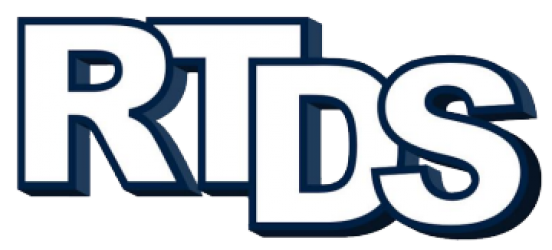If you’re planning to get your CDL in Las Vegas, knowing what to expect from the medical side of things can save you a lot of time and stress. Before you even get behind the wheel for training, you’ll need to pass a medical exam that shows you’re healthy enough to drive a commercial vehicle. That exam is more than just a short check-up. It plays a big role in keeping you and others safe on the road.
Understanding the medical requirements isn’t as tricky as it sounds. It just takes a little preparation. Once you know what medical examiners are checking for, the whole process becomes much easier. By knowing what to expect, you can get ahead of any possible issues and focus on passing your test and moving forward with your driving career here in Las Vegas.
Why Medical Requirements Matter
Driving a commercial vehicle all day isn’t like driving a small car around the neighborhood. Trucks are large, sometimes carry heavy or sensitive items, and take up a lot of space on the road. That’s why your health matters so much. The better shape you’re in, the more alert and safe you’ll be when handling your vehicle.
Road safety starts with the driver, and medical fitness is a key piece of that puzzle. Federal and Nevada state agencies require a certain level of wellness before someone can get behind the wheel of a commercial truck. Medical exams help verify drivers can see well, stay focused, and deal with the physical demands of the job. Think of it like a gatekeeper. If your body can’t support the load and pressure of long hauls or city traffic, problems can pop up fast.
Some common health issues that can affect your ability to get a CDL include:
– Poor vision not corrected by glasses or contacts
– Hearing loss that stops you from hearing horns or sirens clearly
– Breathing conditions, especially ones that require medical devices
– Uncontrolled diabetes that could lead to fainting or slow reaction times
– Seizure disorders or a history of fainting
– Serious heart conditions that can interrupt alertness or stamina
That doesn’t mean each of these automatically disqualifies someone. But if something calls safety into question, you’ll probably need to supply more information from your doctor.
Staying on top of your health helps you stay on top of your future in the driving industry. Even seemingly small things can impact your application. For example, someone who doesn’t take their high blood pressure medication regularly might face delays or fail the exam because of unsafe readings. Planning ahead can really make a difference.
Required Medical Examinations
Getting your CDL in Las Vegas means setting aside time for a DOT (Department of Transportation) physical exam. You need this before completing your training, and the sooner it’s done, the better off you’ll be. The exam has to be done by a certified medical examiner listed on the Federal Motor Carrier Safety Administration (FMCSA) registry.
Here’s what to expect during the medical exam:
1. Vision Test
You’ll be asked to read an eye chart and will need to meet a minimum vision standard. Glasses or contacts are fine as long as they help you meet the requirement.
2. Hearing Test
You’ll have to hear a forced whisper from a short distance. If you wear hearing aids, you can still qualify if your hearing is corrected well enough.
3. Blood Pressure and Pulse Check
The examiner looks for signs of high blood pressure or irregular heartbeat that could make long driving shifts dangerous.
4. Urine Test
This is not a drug test, but it checks for blood sugar levels and kidney problems, which can signal diabetes or other health conditions.
5. General Physical Examination
The examiner checks major body systems. This includes checking your lungs, heart, spine, joints, and reflexes. If anything looks off, they may ask for more tests or documents.
These exams usually take place in clinics throughout Las Vegas that are registered with the FMCSA. You can book an appointment just like you would for a regular check-up. It’s smart to bring a list of your current medications, any needed hearing or vision aids, and paperwork for any ongoing medical conditions. Having everything ready can prevent delays and help you pass without unexpected problems.
Stay calm, be honest, and speak up about anything the examiner should know. If you’re treating a condition and it’s under control, the examiner will likely just ask for proof from your physician. Transparency always works in your favor during this step.
Common Medical Disqualifications
While a CDL medical exam covers general fitness, there are specific health conditions that might keep someone from passing. These aren’t meant to exclude drivers unfairly. They’re designed to keep roads safe and to protect the driver from facing a dangerous medical episode behind the wheel.
Some of the common conditions that can lead to disqualification include:
– Epilepsy or any history of seizures without proper medical clearance
– Insulin-treated diabetes that isn’t well managed
– Vision that can’t be corrected to meet basic standards
– Hearing loss that can’t be corrected by aids to meet testing levels
– Diagnosed heart conditions that affect stamina or focus
– Relying on narcotics or habit-forming drugs that impair your responses
Some of these are permanent disqualifiers, while others can be temporary. Having high blood pressure, for example, won’t automatically disqualify you if you’re managing it with medication correctly. The same goes for diabetes. If your blood sugar is under control and you’re monitored by a doctor, you may still be eligible. But the key is documentation.
If you’re unsure about a specific condition, the best route is to get ahead of it. Talk to your doctor, gather up test results or treatment records, and be ready to share them at your physical. If your medical certification is denied or delayed, there’s typically an appeal or re-check process available, especially for conditions that can be stabilized or treated. Being proactive can cut down on the waiting game and get you back on track faster.
Preparing For Your CDL Medical Exam
Taking a little time to prepare before your medical exam can go a long way in helping you pass with fewer hiccups. You don’t need to be at peak fitness, but staying organized and healthy goes a long way.
Here are some simple steps you can take to be ready:
1. Bring a full list of any prescriptions you take, dosage amounts, and the prescribing doctor’s name
2. If you use glasses, contacts, hearing aids, or a CPAP machine, bring it to the exam
3. Get a good night’s sleep the night before and avoid caffeine or tobacco for several hours beforehand, since those can mess with blood pressure readings
4. If you have a chronic condition like diabetes or high blood pressure, get a letter from your treating provider confirming your treatment plan and current control
5. Wear clothes that are comfortable and allow easy access for tests like blood pressure checks or reflex tests
It’s also smart to eat light before your appointment and stay hydrated. Avoid salty or sugary foods that could push your readings higher than your normal levels. If the examiner sees a red flag, they might ask for re-testing or specialist clearance, which can delay your training start.
One example of where preparation helped is a student who nearly failed his exam because he had forgotten to bring his CPAP usage reports. He thought mentioning the machine was enough. Once he went home, printed out the reports confirming consistent use, and brought them back, he passed the exam with no delay. That small step saved him days of waiting.
Your Health Sets the Pace of Your Training
Staying ahead of medical troubles can give you a serious leg up when starting your path to a CDL. Knowing what examiners look for, understanding the disqualifying conditions, and taking the right steps before your appointment make the process smoother and give you more confidence during training.
CDL medical exams aren’t about being perfect. They’re about being stable enough to safely manage the demands of the road. Most applicants pass, especially those who come prepared. Putting a little time into your health before that first appointment helps you avoid delays, conversations with specialists, or missing documents.
Getting your CDL in Las Vegas starts with proving you’re ready physically and mentally. Health plays a bigger role in that than most people expect. Once you’ve cleared the medical step, the road opens up for training, testing, and getting hired. The sooner you’re cleared, the sooner your driving journey can begin.
If you’re ready to jumpstart your trucking career, now’s the time to start preparing for your CDL in Las Vegas. RTDS Trucking School offers the training and resources you need to take the next step with confidence and get on the road toward a rewarding future.

